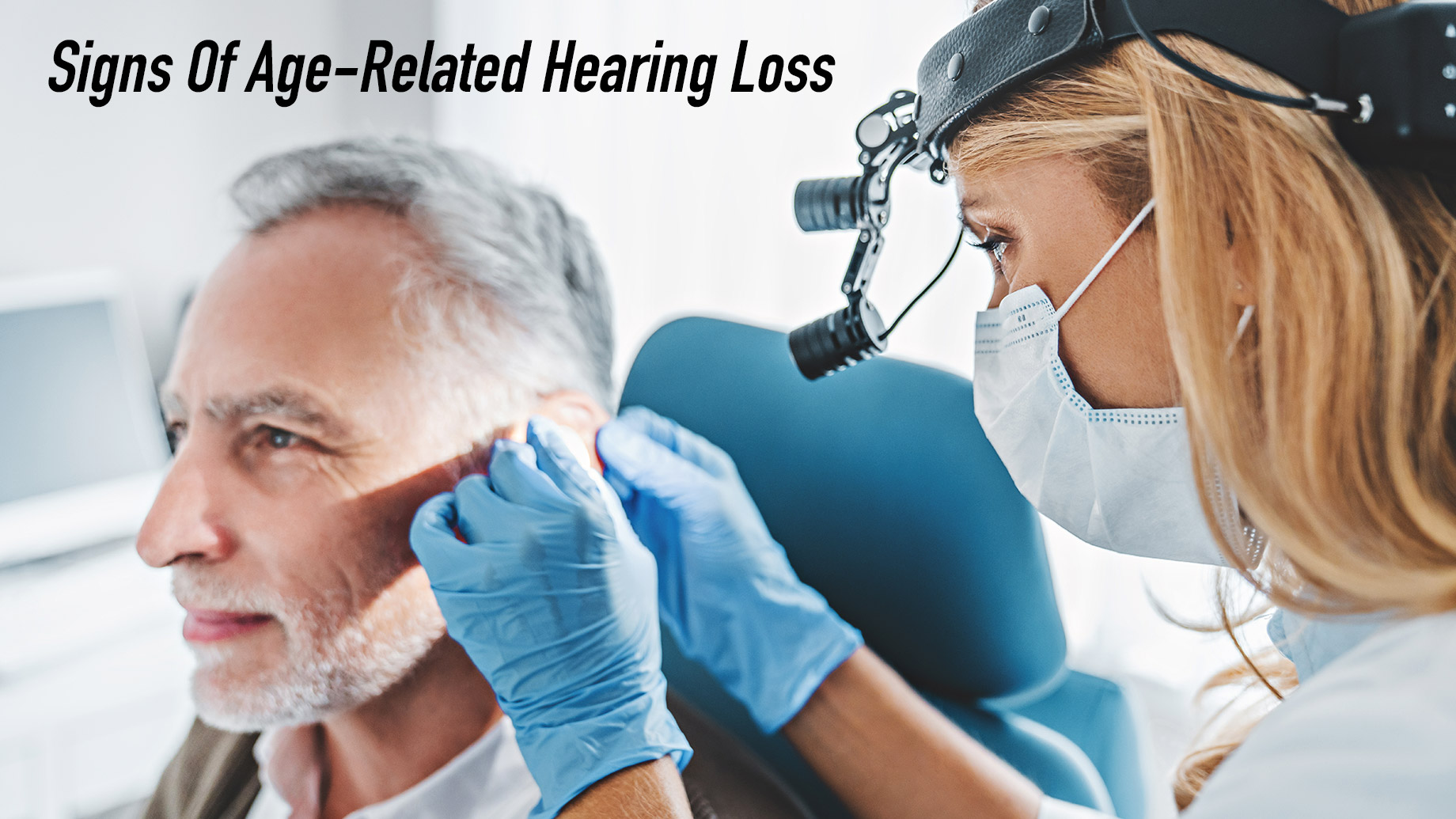
As people age, their senses decline, and hearing is no exception. Age-related hearing loss is very common and is especially common in senior citizens. The medical term for age-related hearing loss is presbycusis.
Below, we will discuss some telltale signs of age-related hearing loss.
What Are The Symptoms Of Age-Related Hearing Loss?
Certain sounds that you hear may seem to be overly loud. You may also notice that you have trouble hearing or having conversations in noisy environments, such as a subway or concert.
A ringing or buzzing in the ears, also known as tinnitus, is common in people with age-related hearing loss. If you have to ask others to repeat themselves, you may be suffering from presbycusis.
Some patients may also have trouble having conversations over the phone, even when the connection is strong.
What Are The Most Common Types Of Age-Related Hearing Loss?
Hearing loss in adults may be caused by hereditary factors, aging, exposure to loud noises, trauma, certain medications or procedures, or disease. Moreover, you should be aware of two categories of hearing loss.
The first is sensorineural hearing loss. Damage to the auditory nerve or inner ear may cause sensorineural hearing loss. Unfortunately, sensorineural hearing loss is usually permanent.
Conductive hearing loss is the second type of hearing loss. It is usually caused when sound waves cannot reach the patient’s inner ear as intended. A punctured eardrum may cause this form of hearing loss.
Other possible causes may include excess fluid in the ear and an accumulation of earwax. The good news is that conductive hearing loss can usually be treated via surgical intervention or an alternative medical treatment.
Mixed hearing loss occurs when the patient suffers from sensorineural and conductive hearing loss.
How To Prevent Age-Related Hearing Loss?
Regular ear tests will help diagnose a wide range of hearing disorders. You may be prescribed hearing aids to help you hear if you deal with hearing loss affecting your quality of life.
An audiologist is a hearing specialist trained to administer ear screenings and teach patients how to use their hearing aids. You may be given a trial period to test your hearing aids, and regular follow-up appointments will ensure that no significant changes have occurred since your last appointment.
Mobile applications, cochlear implants, assistive-listening products, and alerting devices may also be recommended, depending on your hearing impairment and severity.
You can also opt for over-the-counter hearing aids, designed for people with moderate or mild hearing loss and can be purchased without a prescription. A healthy diet can also prevent or slow down the aging process of the auditory system.
Regular exercise and a nutritious and balanced diet can help boost immune system functionality, blood circulation, and bone strength. Try and eat a diet that contains high folate, magnesium, potassium, zinc, vitamin D, vitamin B12, and Omega-3 fatty acids.
Eggs, dairy, whole grains, legumes, and fruits are some natural sources of essential vitamins and minerals that can reduce the production of free radicals and help prevent many different diseases, including age-related hearing loss.
A regular hearing test is a good start towards optimizing your long-term ear health.
There Is Help
Did you know that hearing loss is the third most common chronic health problem facing adults in North America? Despite this, only about 33% of hearing loss adults get the help they need.
Communication tips are crucial to helping seniors with hearing loss. For example, you should repeat pertinent details and speak clearly.
In addition, you should try and reduce the noise in the background. Try to take them aside in a quiet room so that you can talk to them without any distractions. The room also needs to be well illuminated so that they can see you enunciate your words.
Remember to face the person you are speaking to and ensure that you have their undivided attention before starting the conversation. Also, if the patient seems not to understand what you are saying, then do not simply repeat the same words.
Instead, try rephrasing the sentence to see if they can understand what you are saying.
If you are senior suffering from hearing loss, you should not suffer in silence. Make an appointment with an audiologist so that they can test your hearing with the most advanced medical tools on the market.
Once they have diagnosed the root cause of your hearing loss, they will custom-tailor a treatment modality to treat your hearing disorder.